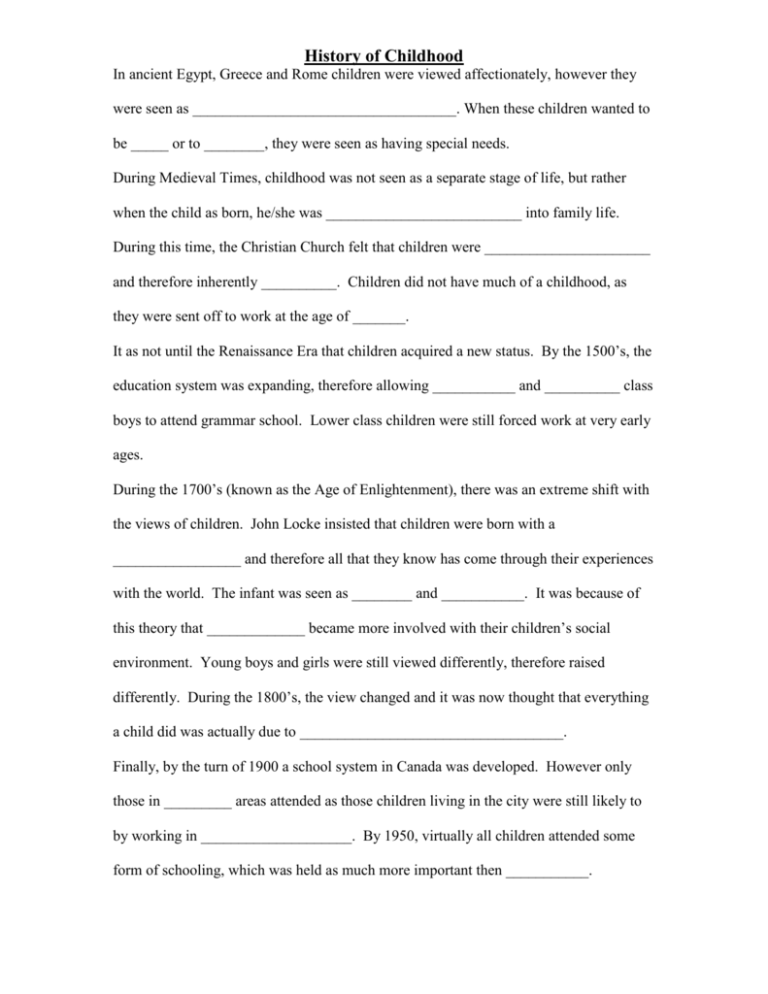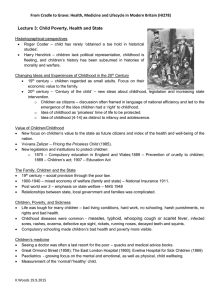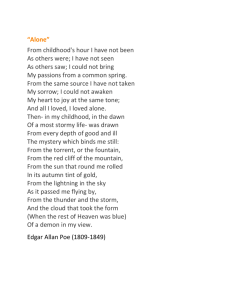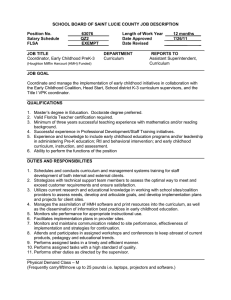History of Childhood
advertisement

History of Childhood In ancient Egypt, Greece and Rome children were viewed affectionately, however they were seen as ___________________________________. When these children wanted to be _____ or to ________, they were seen as having special needs. During Medieval Times, childhood was not seen as a separate stage of life, but rather when the child as born, he/she was __________________________ into family life. During this time, the Christian Church felt that children were ______________________ and therefore inherently __________. Children did not have much of a childhood, as they were sent off to work at the age of _______. It as not until the Renaissance Era that children acquired a new status. By the 1500’s, the education system was expanding, therefore allowing ___________ and __________ class boys to attend grammar school. Lower class children were still forced work at very early ages. During the 1700’s (known as the Age of Enlightenment), there was an extreme shift with the views of children. John Locke insisted that children were born with a _________________ and therefore all that they know has come through their experiences with the world. The infant was seen as ________ and ___________. It was because of this theory that _____________ became more involved with their children’s social environment. Young boys and girls were still viewed differently, therefore raised differently. During the 1800’s, the view changed and it was now thought that everything a child did was actually due to ___________________________________. Finally, by the turn of 1900 a school system in Canada was developed. However only those in _________ areas attended as those children living in the city were still likely to by working in ____________________. By 1950, virtually all children attended some form of schooling, which was held as much more important then ___________.











